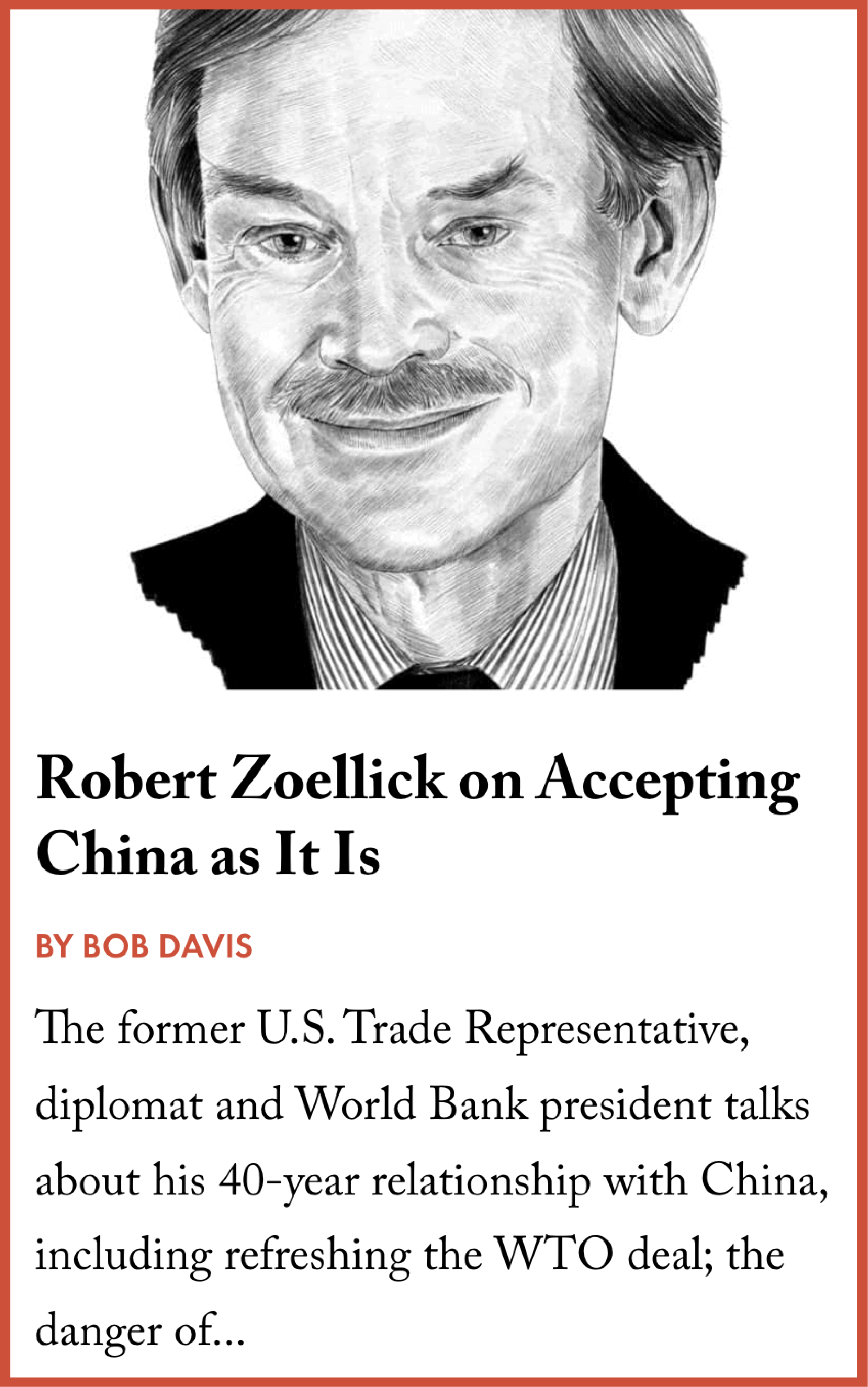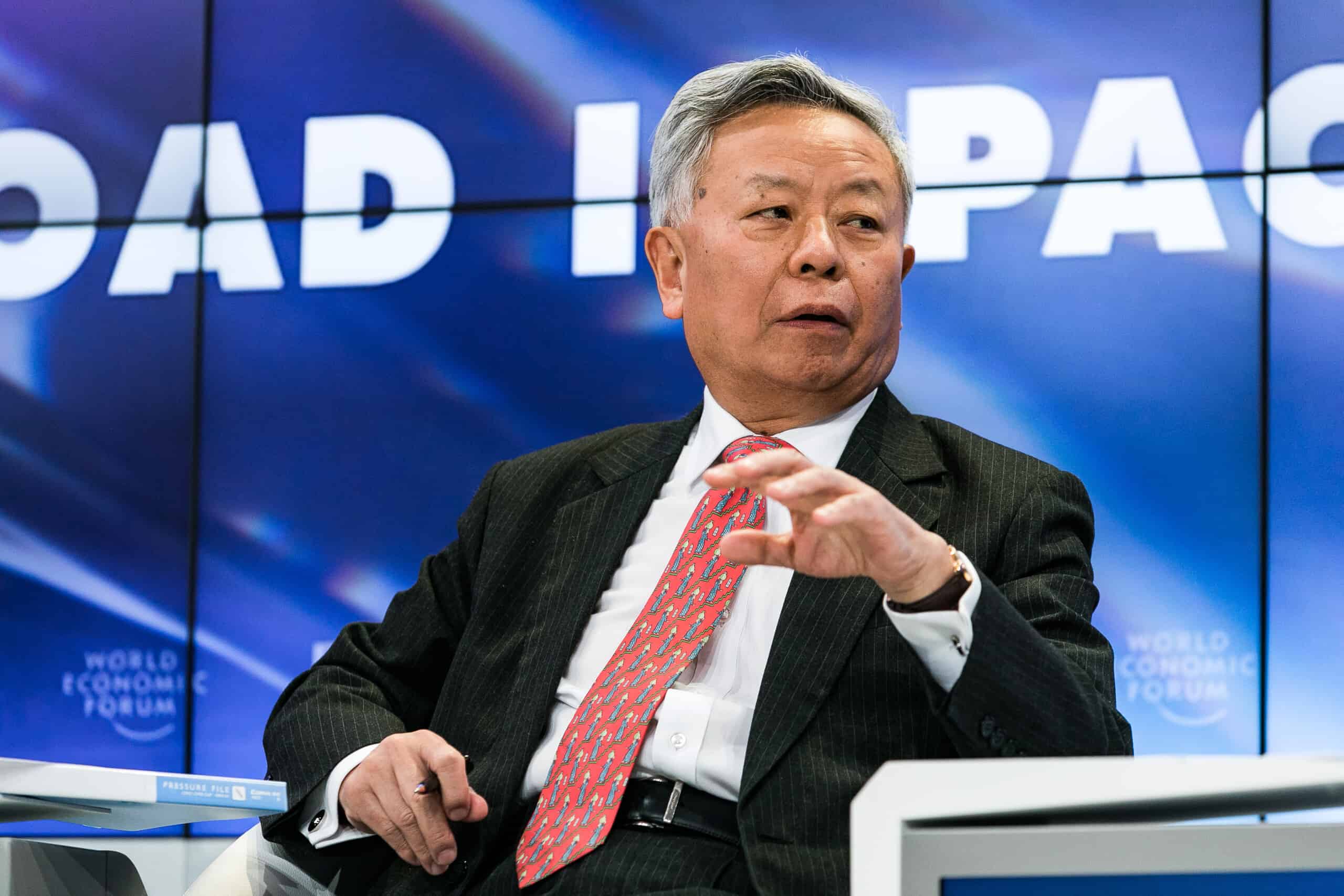
China’s answer to the World Bank is facing a major reputational test after the very public departure of a top executive last week. Canadian Bob Pickard quit his role as global director of communications at the Asian Infrastructure Investment Bank with a Twitter broadside accusing his former employer of being dominated by Chinese Communist Party officials — allegations the AIIB has rejected as “baseless and disappointing.”
Despite the firm denial, Pickard’s allegations go to the heart of questions the AIIB has faced since its inception in 2016. The bank promotes itself in its mission statement as a multilateral development bank (MDB) that is independent from member state governments — including China’s — operating with transparent management practices. While some Western countries have signed up to the AIIB, the U.S. has long been skeptical of its ties to Beijing.
This week, The Wire looks at the track record of the AIIB since its founding, and examines its claims around political independence and transparency.
THE AIIB STORY
Chinese president Xi Jinping announced his plan for a new multilateral development bank on a visit to Indonesia in October 2013, saying that it would give priority to developing countries in Asia.
Analysts immediately pegged the AIIB as a potential rival to the World Bank, one of the two so-called Bretton Woods institutions — along with the International Monetary Fund — founded at the end of World War II, which have long been seen by Beijing as being dominated by U.S. and Western interests.
“The Chinese have always been unhappy with their position in the World Bank and the IMF, because they were not there when the institutions were set up,” says Robert Wihtol, an adjunct faculty member at the Asian Institute of Management in Manila. China’s World Bank and IMF memberships were transferred to the PRC in 1980, having previously been held by the Republic of China government based in Taiwan.
Though the AIIB has an Asian focus, its founding members included countries from outside the region, such as the U.K., Germany, France, and Italy. The United States and Japan opted not to join, citing concerns about its governance and possible impact on developing countries’ finances.
As the bank’s largest shareholder, China retains the largest share of voting power, with a 26.6 percent weighting. This gives China an effective veto over bank decisions that require a 75 percent supermajority of its members, including the election of the bank’s president. Although the AIIB was occasionally referred to as a supporting player in Xi Jinping’s signature Belt and Road Initiative, the two have functioned separately.
“It’s not that AIIB itself [was] created specifically for the purpose of financing BRI,” says Zongyuan Zoe Liu, fellow for international political economy at the Council on Foreign Relations. “But the BRI fits into the broader category of how China envisions its role in development finance and in particular, infrastructure.”
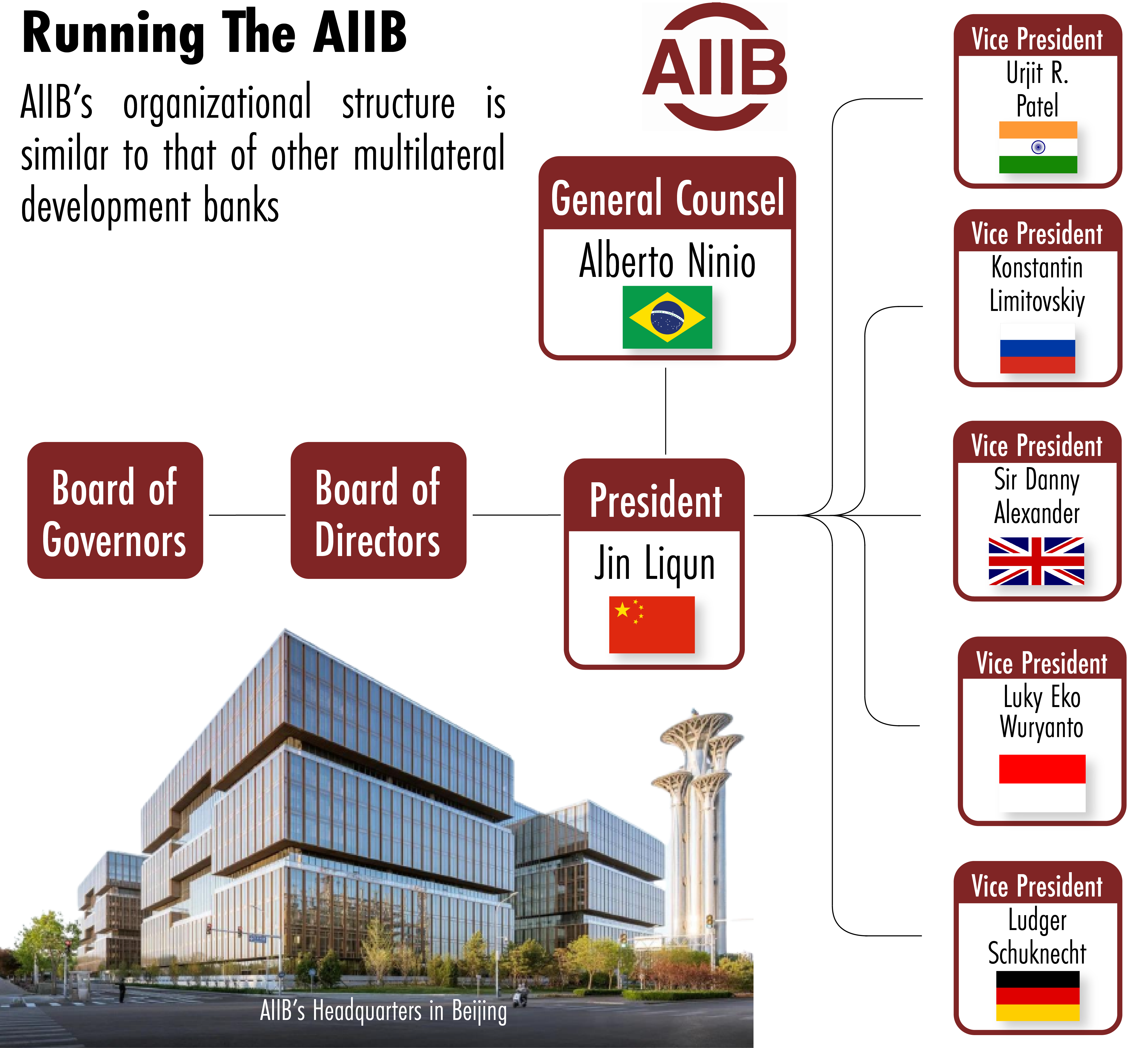
The AIIB’s organizational structure, with a board of governors, board of directors and a president, resembles that of other MDBs. What sets the AIIB apart from the World Bank, as well as other regional multilateral banks like the Asian Development Bank (ADB) and the European Bank for Reconstruction and Development (EBRD), is that the board of directors is not based at the bank’s headquarters in Beijing.
“It does mean that the executive authority of the AIIB president and management is likely to be considerably stronger, because the bank does not have resident board members monitoring its activities on a daily basis,” says Wihtol, who worked at the ADB in various roles for 20 years, including a stint as country director for China. “Therefore oversight by the bank’s member countries is very different in the AIIB.”

Wihtol proposes that the bank’s presidency should be allowed to rotate among its member countries, but concedes that this seems unlikely.
“It’s quite a big ask, given that the U.S. has always nominated the World Bank president, European countries the IMF managing director and Japan the president of the Asian Development Bank,” he says.
After Bob Pickard’s resignation, the AIIB said it was proud of its multilateral mission, adding that it “has a diverse international team representing 65 different nationalities and members at AIIB, serving our 106 members worldwide.” The bank said that it would be cooperating with the Canadian government’s review of Pickard’s allegations and of Canada’s wider involvement in the AIIB.
The bank’s general counsel, Antonio Ninio, will also lead an internal review of Pickard’s claims. To the right is his biographical sketch and those of other leading bank figures likely to be involved, including the AIIB’s 73-year-old president, Jin Liqun, who spent nearly two decades in China’s Ministry of Finance.
Canada’s voting power at the AIIB is only 0.83 percent, reflecting its status among the bank’s non-regional members whose collective share is just over 27 percent. However, observers say that the AIIB still benefits from having Western countries as members.
“China after all has limited experience in terms of setting norms and rules and standards,” says Liu. “So having those countries participating allows AIIB to have the expertise.”
A DEVELOPING LENDER
AIIB’s lending remains modest compared to its long-established peer institutions: To date, it has committed $42 billion to 221 projects, according to its website. The bank has sought to temper suggestions that it would compete with other MDBs by reaching agreements to co-finance some projects with them.
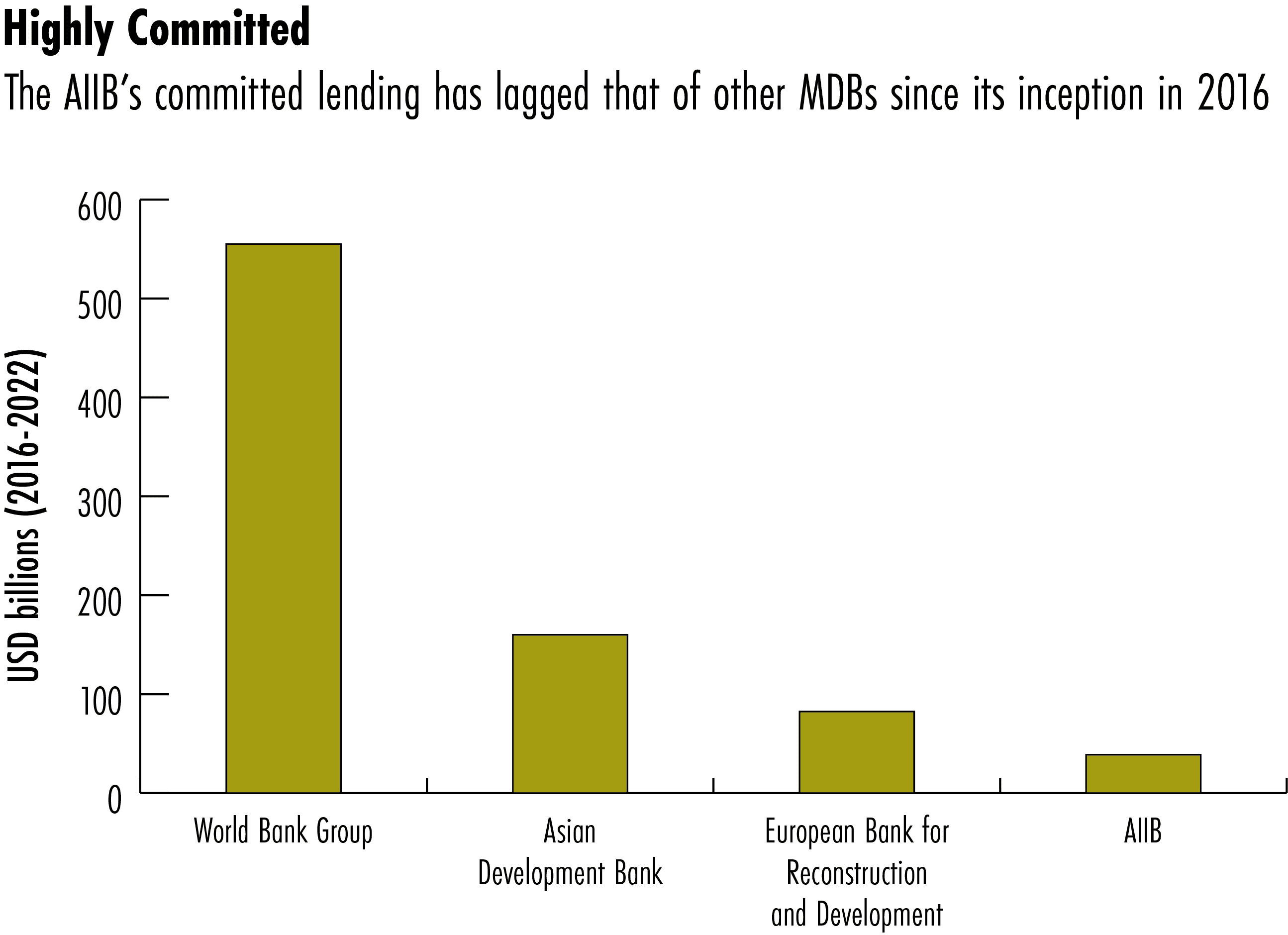
India is the AIIB’s largest borrower with $9.8 billion committed to projects since 2016, more than double that of the next largest borrower. Defenders of the AIIB’s independence point out that India’s status as the bank’s largest beneficiary has not diminished despite deteriorating China-India ties since 2020.
“When a conflict broke out on the China-India border, AIIB management still insisted on acting according to international standards. The reaction internationally was very positive” said AIIB president Jin Liqun in a May 2021 speech, less than a year after a border clash left 20 Indian soldiers and four Chinese soldiers dead. “This is the first severe test of AIIB’s character as an international institution,” Jin added.
THE BANK’S BENEFICIARIES
Some of AIIB’s most significant investments have come in partnership with other MDBs:
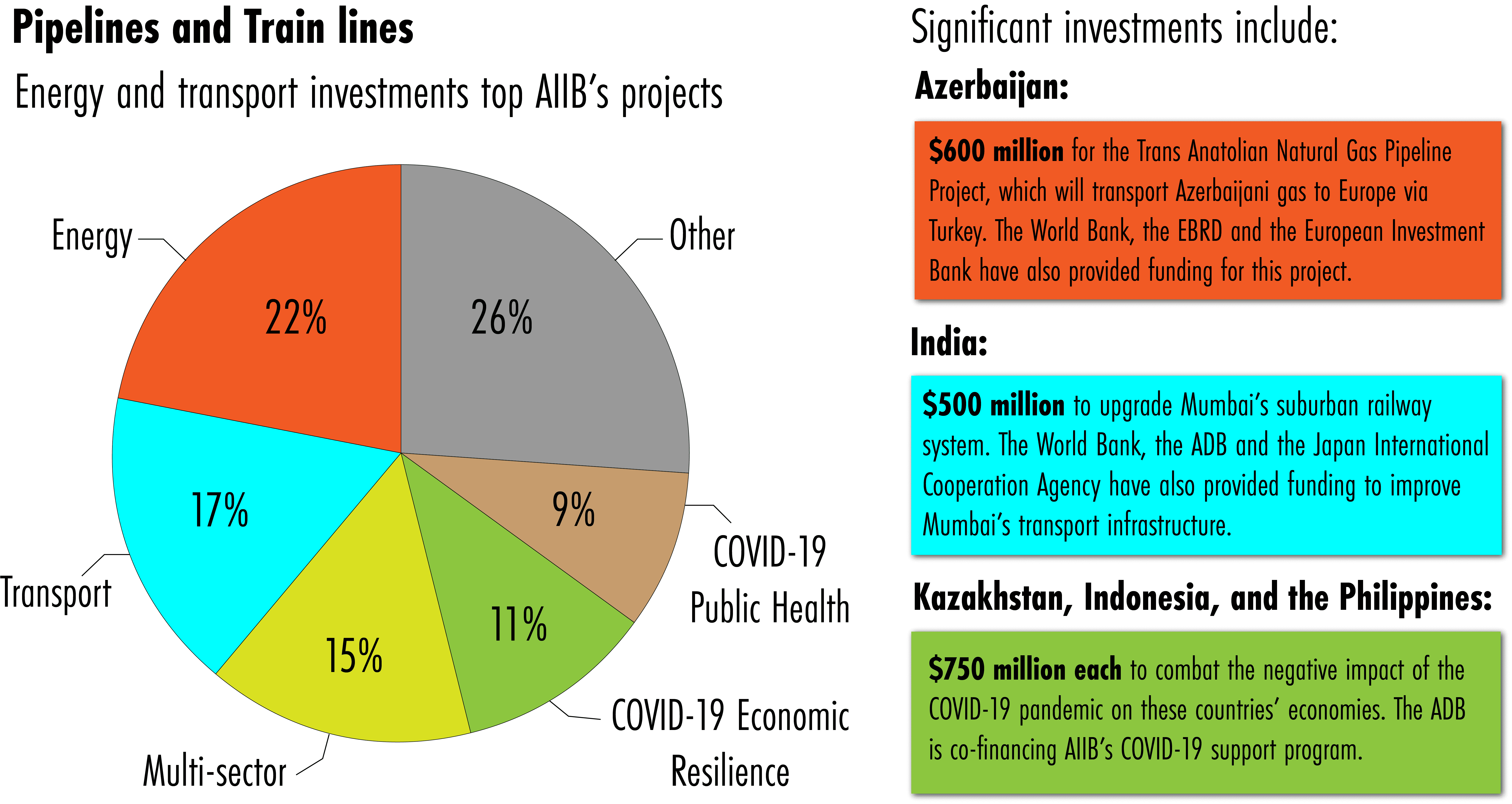
AIIB’s cumulative lending since 2016 is far short of its initial $100 billion capital endowment, a sign of its cautious approach to date. There are signs that this might soon change, with the bank announcing plans in April to open its first overseas office in Abu Dhabi. So far this year the bank has proposed new investments amounting to $7.4 billion.

Aaron Mc Nicholas is a journalist based in Washington DC. He was previously based in Hong Kong, where he worked at Bloomberg and at Storyful, a news agency dedicated to verifying newsworthy social media content. He earned a Master of Arts in Asian Studies at Georgetown University and a Bachelor of Arts in Journalism from Dublin City University in Ireland.

